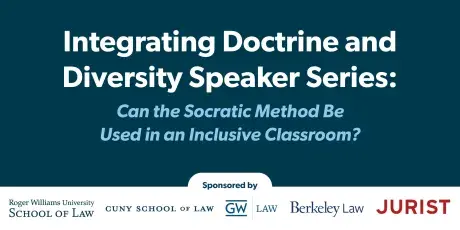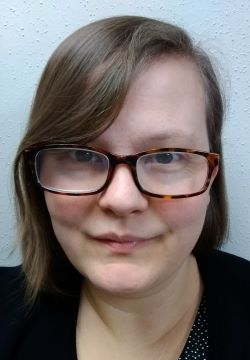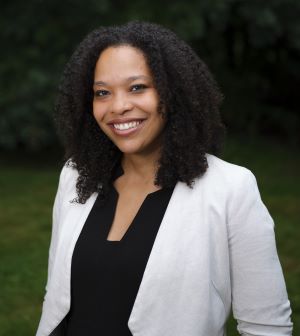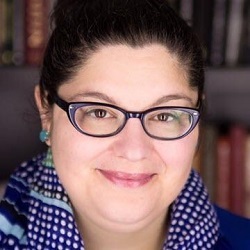Integrating Doctrine & Diversity Series: Can the Socratic Method Be Used in an Inclusive Classroom?

Drawing upon the experience of faculty from across the country, Integrating Doctrine and Diversity is a collection of essays with practical advice, written by faculty for faculty, on specific ways to integrate diversity, equity and inclusion into the law school curriculum. Chapters will focus on subjects traditionally taught in the first-year curriculum (Civil Procedure, Constitutional Law, Contracts, Legal Writing, Legal Research, Property, Torts) and each chapter will also include a short annotated bibliography curated by a law librarian. With submissions from over 40 scholars, the collection is the first of its kind to offer reflections, advice and specific instruction on how to integrate issues of diversity and inclusions into first-year doctrinal courses.
In 2021, RWU Law began sponsoring an ongoing Integrating Doctrine & Diversity Speaker Series in collaboration with CUNY School of Law and JURIST. Each previous installment has been attended by hundreds of legal education professionals from across the country.
Can the Socratic Method Be Used in an Inclusive Classroom?
12:00 – 1:00 PM EST - Zoom Webinar
Can a professor who uses the Socratic Method in class create, maintain, and/or build an inclusive environment for students? Given the history of the style of teaching and the learning needs of students, how can professors strike a balance between safety, learning, and rigor? What does cognitive science have to say about this balance? How might the subject matter of the class impact these pedagogical decisions? This session will discuss different ways professors have worked to create inclusion while using the Socratic Method and detail some of the flexibility this might require.
This event is co-sponsored by Roger Williams University School of Law, City University of New York School of Law, George Washington University Law School, Berkeley Law, and JURIST.
Meet the Panelists
%20www.jpg)
Jamie Abrams is a Professor of Law at the American University Washington College of Law where she teaches torts, legal writing, and family law. She also directs the first-year Legal Research & Writing program. She has a forthcoming book with the University of California Press titled Inclusive Socratic Teaching: Why we need it and how to achieve it (forthcoming 2024). She has also published numerous articles about law teaching, including Legal Education’s Curricular Tipping Point, 49 Hofstra L. Rev. 897 (2021); Feminist Pedagogy in Law Schools, in The Oxford Handbook of Feminism and Law in the United States (Oxford University Press, Eds. Martha Chamallas, Verna Williams, and Deborah Brakke 2022); and Reframing the Socratic Method, 64 J. Legal Educ. 562 (2015).
She was recently awarded the Blackboard Catalyst Award for Teaching & Learning in 2021. She was previously recognized at the University of Louisville Brandeis School of Law with the University's Presidential Exemplary Multicultural Law Teaching Award and the law school's Teacher of the Year award.

Alyson Drake is the Head of Instruction at the University of Houston Law Library and a Lecturer at the University of Houston Law Center, where she teaches a variety of legal research and analysis courses and designs the legal research curriculum. She writes and presents regularly on the importance of and strategies for integrating evidence-based instructional strategies into legal education at regional and national conferences. She is a founding member of the Teaching the Teachers Conference for Law Librarians and was the 2022 recipient of the American Association of Law Libraries Emerging Leader Award.

Nadiyah J. Humber is an Associate Professor of Law at the University of Connecticut School of Law. She teaches courses in property law, race and the law, and housing law. Her research examines the intersection of civil rights legislation and emerging technologies. She explores how artificial intelligence operates within property transactions and financial service industries, and how these tools affect marginalized people and communities.
Prior to joining the UConn Law faculty, she was the Associate Clinical Professor of law at Roger Williams University School of Law, where she directed the Corporate Counsel, Government, and Prosecution Clinical Externship Programs. Before Roger Williams, she was the director of investigations and outreach and a clinical fellow at Suffolk University Law School’s Housing Discrimination Testing Program, where she managed housing discrimination investigations and co-taught an experiential housing seminar. Earlier, she was a Trial Attorney with the Committee for Public Counsel Services in Worcester, Massachusetts, and she was the Senior Assistant Director of Admissions at Northeastern University Law School.
She also volunteers with Volunteer Lawyers Project in Boston, representing clients in housing court. Professor Humber earned her BS from Vanderbilt University and her JD from Suffolk University School of Law.

Pavel Wonsowicz is a Lecturer in Law and the Director of the Academic Support Program at UCLA Law. Pavel Wonsowicz’s teaching methods have been highlighted in both The Chronicle of Higher Education and The Wall Street Journal. He has won the Professor of the Year award at three law schools (UCLA, UNLV, and Vermont Law School) as well as the Rutter Award for Excellence in Teaching at UCLA School of Law. In recognition of his unique approach to teaching and positive impact on his students, he was awarded UCLA’s Distinguished Teaching Award, the highest teaching honor at the university.
Meet the Moderator

Nicole P. Dyszlewski is one of the editors of Integrating Doctrine and Diversity: Inclusion and Equity in the Law School Classroom. She currently serves as the Director of Special Programs, Academic Affairs at RWU Law and as an adjunct professor. She received a B.A. from Hofstra University, a J.D. from Boston University School of Law, and an M.L.I.S. from the University of Rhode Island Graduate School of Library and Information Studies. She is a member of the Massachusetts State Bar and the Rhode Island State Bar. Her areas of interest are mass incarceration, access to justice, and systems of race and gender inequality in law. Nicole was the 2020 recipient of the American Association of Law Libraries (AALL) Volunteer Service Award and the 2015 recipient of the AALL Emerging Leader Award.
Twitter:@LibrariaNicole
